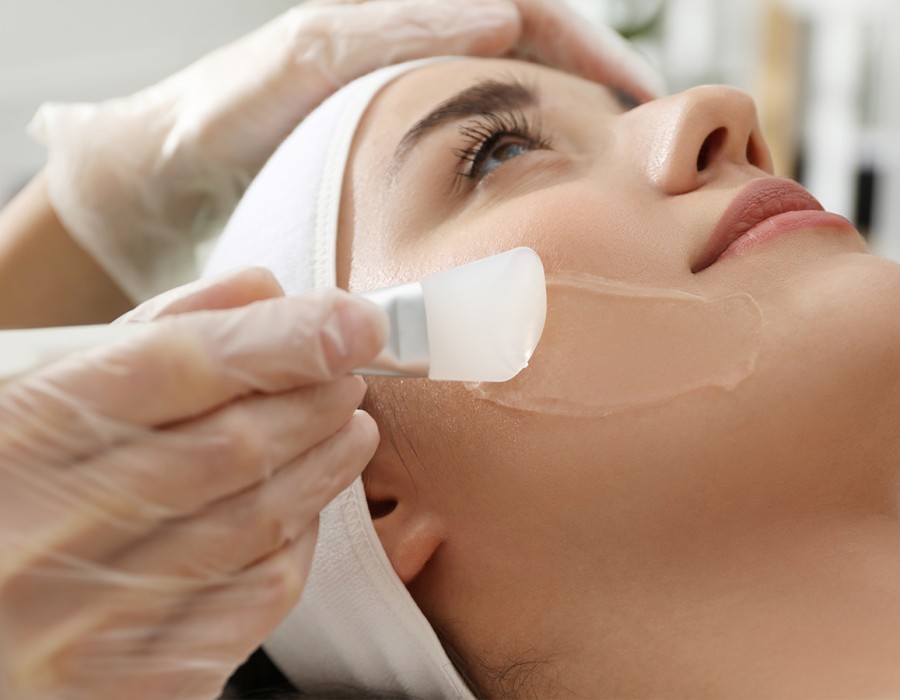Chemical peels are a popular cosmetic treatment that can improve skin texture, tone, and clarity by removing the outer layers of damaged skin. From acne treatment to reducing fine lines, chemical peels offer a wide range of benefits. In Chemical Peels in Dubai, many individuals seek these treatments to address specific skin concerns while achieving a healthier, more radiant complexion. But a common question remains: are chemical peels safe for all skin types?
Understanding Skin Types and Chemical Peels
Human skin varies greatly in thickness, oiliness, sensitivity, and pigmentation. This diversity means that the same chemical peel may affect people differently:
- Oily Skin: Generally tolerates stronger peels well and benefits from acne-targeted solutions.
- Dry Skin: Requires gentler peels to prevent excessive irritation or flaking.
- Sensitive Skin: Can react to strong chemicals, so mild peels are recommended.
- Darker Skin Tones: Need careful selection to avoid pigmentation issues post-peel.
Selecting the appropriate peel based on skin type ensures optimal results while minimizing side effects.
Types of Chemical Peels and Their Suitability
Superficial Peels
These peels affect only the outer layer of skin and are suitable for all skin types. They are ideal for mild concerns such as light acne, minor pigmentation, and dullness.
Medium Peels
Medium peels penetrate deeper and target more noticeable wrinkles, uneven pigmentation, and moderate acne scars. While generally safe for many, people with sensitive or darker skin tones should consult professionals to avoid post-inflammatory hyperpigmentation.
Deep Peels
Deep chemical peels are highly effective for severe scarring, deep wrinkles, or sun-damaged skin. They require professional supervision and are not recommended for all skin types, especially very dark or sensitive skin, due to a higher risk of pigmentation changes and prolonged recovery.
Safety Considerations for Different Skin Types
- Patch Test: Always recommended, especially for sensitive or darker skin, to check for adverse reactions.
- Professional Assessment: A skin analysis helps determine the peel’s type and strength, ensuring safety and effectiveness.
- Pre-treatment Care: Prepping the skin with proper cleansing and exfoliation can reduce risks.
- Post-treatment Care: Sun protection and gentle skincare are essential to maintain results and prevent irritation.
Benefits of Chemical Peels Across Skin Types
When chosen and applied correctly, chemical peels provide benefits for nearly every skin type:
- Exfoliation and smoother texture
- Reduction of acne, scars, and hyperpigmentation
- Improvement in fine lines and wrinkles
- Stimulation of collagen production for firmer, healthier skin
The key is tailoring the treatment to the individual’s skin type and concerns to achieve safe and effective results.
Who Should Exercise Caution
While chemical peels are generally safe, certain groups should exercise caution:
- Individuals with active infections or open wounds on the skin
- Those with a history of keloid scars or severe hyperpigmentation
- People using certain medications or retinoids that increase skin sensitivity
Consulting a skincare professional before treatment is essential to ensure that chemical peels are appropriate and safe.
Conclusion
Chemical peels can be a safe and effective treatment for many skin types, offering benefits ranging from acne reduction to skin rejuvenation. However, the key to safety lies in proper assessment, selecting the right type of peel, and following appropriate pre- and post-treatment care. For residents looking to enhance their skin, Chemical Peels offer customized solutions suitable for a variety of skin types and concerns. With professional guidance, Chemical Peels Dubai can deliver smoother, healthier, and more radiant skin while minimizing the risk of side effects, making it a versatile and trusted skincare option.






Comments